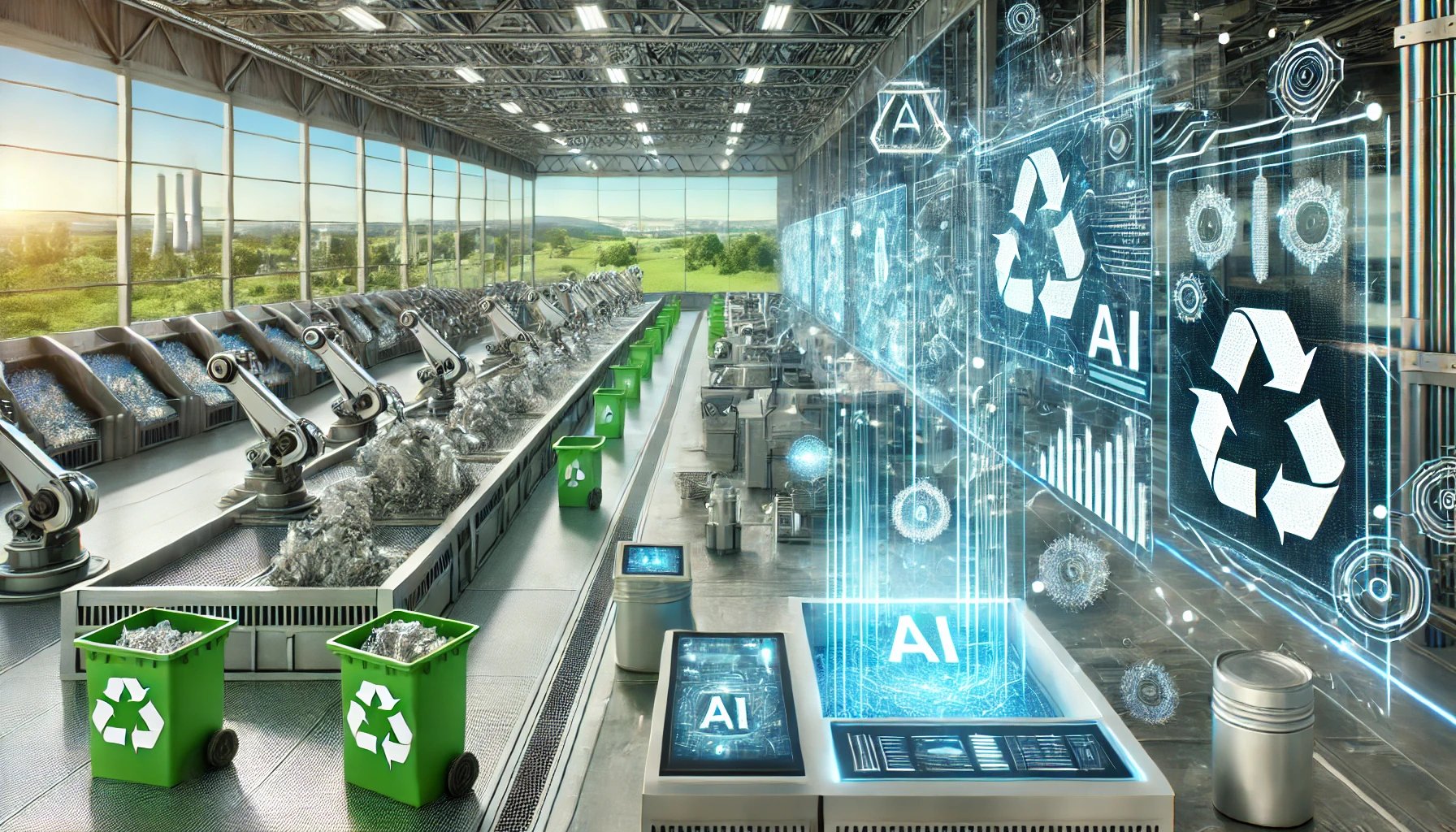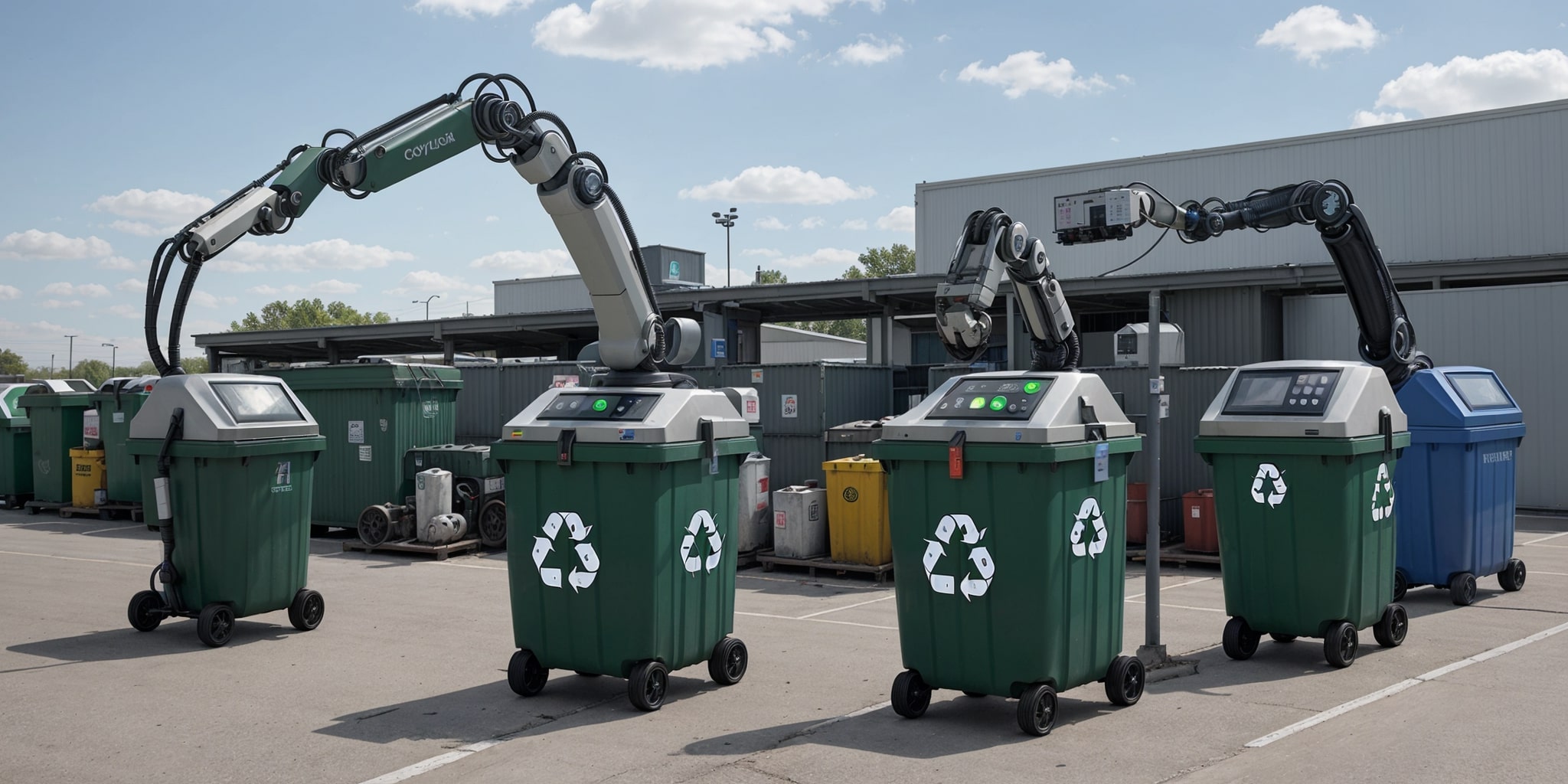QED SOFTWARE » Industries » AI in the recycling industry
In Poland, an amendment to the Waste Act introduces new recycling goals, to be implemented by 2030. According to EU regulations, Poland must achieve a 70% recycling rate for packaging waste by this date. Specific targets are set for materials, such as 55% for plastic, 60% for aluminum, 80% for ferrous metals, and 85% for paper and cardboard. From 2035, only 10% of municipal waste will be allowed in landfills. AI has the potential to revolutionize the recycling industry by automating and optimizing key processes, increasing operational efficiency.

One of the most important applications of AI in recycling is automatic waste sorting. Using image recognition technology and machine learning, AI-powered systems can identify and sort various materials (plastic, metal, paper) faster and more accurately than humans. Examples of such technologies can be found in recycling plants, where AI-equipped robots selectively identify and separate recyclable materials.
Automatic waste sorting systems, powered by AI, use cameras and sensors with Computer Vision technology to analyze waste images in real-time. Machine learning algorithms recognize different materials based on characteristics such as color, shape, texture, and other visual features. These systems then control robotic arms or other mechanisms to quickly separate materials like plastic, metal, paper, glass, organic waste, and more.
AI in waste collection logistics enables more efficient management of resources and vehicle fleets. By analyzing data from various sources, such as container fill levels, traffic, and weather forecasts, AI adjusts routes in real time. This dynamic approach reduces unnecessary trips, lowering fuel consumption and operational costs. Additionally, optimized routes reduce CO2 emissions, contributing to global environmental initiatives. Cities like Barcelona and San Francisco use AI to maximize efficiency in waste management, aligning with sustainability regulations and improving service quality.
For example, AI can predict an increase in demand for recycled aluminum in the coming months, allowing companies to focus on its more efficient recovery. AI systems also monitor compliance with recycling regulations, such as achieving the 70% recycling target by 2030, ensuring companies meet the required standards. Automated reporting simplifies regulatory compliance, and AI algorithms help facilities adapt to changing laws, minimizing the risk of penalties.
Using AI for packaging recycling management helps companies effectively monitor packaging lifecycles in line with new regulations set for 2030. For instance, Coca-Cola is testing AI systems to track plastic packaging and reusable bottles. AI allows the company to determine which items can be reused and which must be recycled, aiding in achieving environmental goals. Similarly, Nestlé employs AI to monitor materials in its packaging, improving resource recovery and compliance with recycling regulations while also reducing operational costs and promoting sustainability.
AI can support the recycling industry from the product design stage by helping create more environmentally friendly solutions. AI algorithms analyze structures and production processes, suggesting changes that reduce material usage, contributing to more sustainable production. For example, a cosmetics company uses AI to analyze packaging manufacturing, reducing plastic usage. AI can simulate production scenarios and identify optimal, lighter materials that still meet durability requirements, leading to less packaging waste. These innovations help companies meet growing environmental regulations while improving material efficiency.
AI can be used to create educational apps that inform consumers about proper waste sorting. Such tools can motivate people to recycle more consciously by offering rewards for active participation in recycling programs. AI-powered apps, equipped with image recognition technology, can analyze users’ waste and provide guidance on correct sorting. These solutions promote ecological behavior, increase community engagement, and support environmental goals. Additionally, AI can help local recycling programs by providing analytical data to optimize educational efforts and track their effectiveness.
The application of artificial intelligence in recycling not only boosts operational efficiency but also helps meet growing legal and environmental requirements. AI has the potential to reduce operational costs, lower emissions, and improve the overall efficiency of the recycling process, contributing to the sustainable development of the industry.
